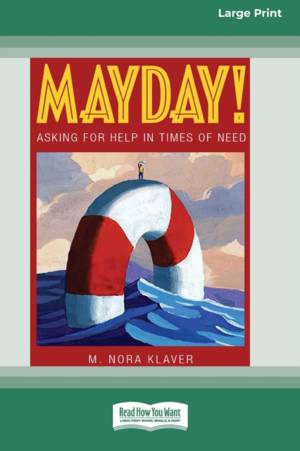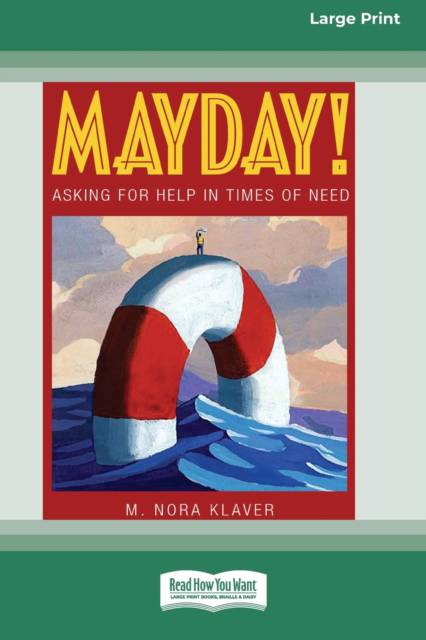
- Afhalen na 1 uur in een winkel met voorraad
- Gratis thuislevering in België vanaf € 30
- Ruim aanbod met 7 miljoen producten
- Afhalen na 1 uur in een winkel met voorraad
- Gratis thuislevering in België vanaf € 30
- Ruim aanbod met 7 miljoen producten
Zoeken
Mayday!
Asking for Help In Times of Need (16pt Large Print Edition)
M Nora Klaver
Paperback | Engels
€ 46,45
+ 92 punten
Omschrijving
Do you know the etymology of the word mayday? It comes from the French m'aidez (pronounced much like the English word mayday). It literally translates to ''help me.'' Whenever we use the word or send out a mayday signal, that's literally what we mean: help me. Mayday is the international call signal for distress used by ships and aircraft that are in the midst of the most severe circumstances. Because of this, the word mayday sometimes denotes hopelessness or desperation. People tend to cry mayday when they've reached their own personal threshold of despair. Why wait until we hit that point of desperation? Why not see the word mayday as an everyday request for help? Why not cry mayday for the small things like help with the laundry or with a report that is due? It is possible. We can view the intimidating act of asking for help as a gesture of hope and optimism and not one of despair and misery. There are a number of valid reasons why we don't ask for the help we need. It's important to know what stops us from doing what we know in our hearts is the right thing to do. So, that's where we'll begin: with why we don't ask for the help we deserve. Within Part One of the book, we'll explore why we don't ask, why we should, and the anchoring principles that make the Mayday! process work. Try This sections throughout the book are practical activities that will breathe life into the concepts and principles of the Mayday! process. You might want to set up a word-processing file where you can write your thoughts and comments on the Try This activities. In Part Two of the book, you will discover the seven-step process that will change the way you see and, equally important, perform the act of asking for help. Designed to strengthen and clarify your requests, the Mayday! process will lead you to more profound friendships, greater intimacy, and a life of simplicity, ease, and flow.
Specificaties
Betrokkenen
- Auteur(s):
- Uitgeverij:
Inhoud
- Aantal bladzijden:
- 380
- Taal:
- Engels
Eigenschappen
- Productcode (EAN):
- 9780369370068
- Verschijningsdatum:
- 23/12/2008
- Uitvoering:
- Paperback
- Formaat:
- Trade paperback (VS)
- Afmetingen:
- 156 mm x 234 mm
- Gewicht:
- 480 g

Alleen bij Standaard Boekhandel
+ 92 punten op je klantenkaart van Standaard Boekhandel
Beoordelingen
We publiceren alleen reviews die voldoen aan de voorwaarden voor reviews. Bekijk onze voorwaarden voor reviews.











